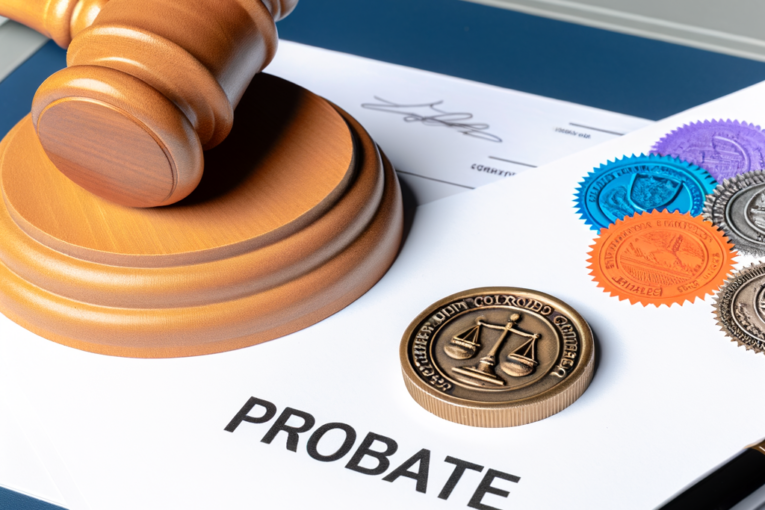Estate planning, an often undervalued aspect of financial management, plays a crucial role in protecting the interests and welfare of one’s dependents after death. These plans typically encompass directives regarding the allocation and handling of assets, directives for minor children if applicable, and instructions related to retirement accounts.
The implications of negating such planning can be significant, leading to potential legal complications, tax implications, and an unintended distribution of assets.
The absence of an estate plan postulates a condition known as intestacy, where the state assumes control over the distribution process according to its intestate laws. This scenario can give rise to disputes among beneficiaries due to perceived inequitable asset division or misinterpretation of the deceased’s wishes. It further complicates matters when minor children are involved or unique types of assets exist in the portfolio.
Key Takeaways
- Neglecting estate planning can lead to legal complications, tax implications, and the unintended distribution of assets.
- Dying without an estate plan results in intestacy, where the state controls asset distribution according to its laws.
- Disputes among beneficiaries can arise due to inequitable asset division or misinterpretation of the deceased’s wishes.
- Dying without an estate plan can result in lengthy, expensive, and public probate processes.
Definition of Estate Planning
Estate planning is an essential process that entails the arrangement of one’s assets and affairs in preparation for incapacitation or death.
A lack of such planning can lead to a myriad of legal complexities and financial hardships for those left behind.
The following discussion will delve into the various consequences that manifest when an individual dies intestate, providing comprehensive insight into the implications for asset distribution, potential tax liabilities, and the overall impact on surviving relatives and beneficiaries.
Consequences of Dying Without an Estate Plan
Assets then must go through the probate process, which can be lengthy, expensive, and open to public scrutiny. This situation often leaves one’s final wishes open to interpretation or even completely ignored due to a lack of documented guidance. It is also important to note that in cases where no will exists, an appointed administrator has control over personal belongings instead of trusted family members.
The absence of proper planning can also lead to potential arguments and legal battles among family members regarding asset distribution as they struggle to interpret what the deceased party might have wanted. Such disputes could lead to costly court battles that deplete the value of the probate estate itself.
Intestacy laws dictate how assets should be distributed if there is no will, but this process rarely reflects what someone would choose for their property allocation.
The Probate process can drag on for months or even years before heirs receive their inheritance. In many cases, an estate planning attorney has to step in, leading to additional costs.
Intestate succession laws are rigid and don’t account for nuances within relationships or unique family situations.
Proper estate planning mitigates these issues by providing clear instructions about asset distribution after death, thereby lessening stress on loved ones during already difficult times. When someone makes a will, their estate still goes through probate. However, it’s important to note that the way to avoid probate is through trust planning.
Trust planning offers a more comprehensive approach to estate management, ensuring that assets are efficiently transferred to beneficiaries without the need for probate. By incorporating trust planning into estate plans, individuals can help streamline the distribution process, protect their assets, and provide greater peace of mind for their loved ones.
Intestate Laws and Minor Children
These laws dictate the distribution of assets when an individual dies without a valid estate plan, essentially deciding who gets what in terms of property and asset allocation.
For minor children, these intestate laws often take into account their unique status as dependents. The order of succession typically prioritizes spouses and dependent children above other relatives or potential heirs. However, specific provisions for minors can vary greatly from one jurisdiction to another. Some states may place restrictions on what minors can inherit outright, necessitating the establishment of trusts or custodial accounts until they reach legal age.
In addition to material inheritance rights, intestacy succession law also influences aspects like child guardianship decisions when both parents die without a will or estate plan in place. This process involves court-appointed representatives who must prioritize the best interests of the child while respecting legal guidelines around familial ties and caregiver capacity. While immediate family members are usually considered first, it’s important to note that this isn’t always guaranteed under intestacy rules, which further underscores the significance of having an estate plan for families with dependent children.
Personal Representative and Legal Documents for Minor Children
In the realm of estate planning, a personal representative plays a pivotal role in safeguarding the interests of minor children, particularly when no formal plan exists to dictate their inheritance management. This individual is typically appointed by the court in the absence of an estate plan and can be a family member, friend, or even a third-party entity like a bank or trust company. The personal representative assumes the responsibility for managing the decedent’s estate during the intestate succession process; this involves gathering assets, paying off debts and taxes, and eventually distributing the remaining assets to heirs as per state law. Key legal documents, such as letters testamentary or letters of administration, empower them with this authority.
A will, for instance, could designate guardianship for minor children and outline plans for their financial support. A testamentary trust within a will can further specify how inherited assets should be managed on behalf of minors until they reach adulthood. Similarly, power of attorney documents allow individuals to name someone trusted to handle financial affairs or make decisions if they become unable to do so themselves. In the absence of such safeguards in an estate plan, courts may need to intervene in order to secure appropriate care and asset management for any minor children involved.
Retirement Accounts
This segment delves into crucial aspects such as beneficiary designations on retirement accounts and the intricacies of probate processes specifically related to these financial reserves.
The aim is to shed light on these critical elements in order to guide individuals in effectively planning their estates for maximum benefit and minimal legal hassle.
Beneficiary Designations on Retirement Accounts
These designations are essentially contractual agreements between the account holder and the financial institution where these assets reside. The terms of this agreement stipulate that upon the death of the account holder, the assets contained within these retirement accounts are to be transferred directly to those individuals named as beneficiaries. This occurs irrespective of any contrary instructions that may be specified within other estate planning documents, such as trusts or wills.
The importance of regularly reviewing and updating these beneficiary designations cannot be overstated, especially following significant life events like marriage, divorce, or the birth of children. Failure to do so can lead to unintended consequences upon death.
For instance, if an individual fails to update their beneficiary designation after divorcing and remarrying, their ex-spouse could still receive their retirement assets upon their death.
Probate Process for Retirement Accounts
The probate process pertains to the legal proceedings that take place after an individual’s death to distribute their assets and resolve any debts. For retirement accounts, such as Individual Retirement Accounts (IRAs) and Roth IRAs, this procedure can be complex due to specific rules and regulations surrounding these types of accounts. However, it’s essential to know that beneficiary designations often supersede instructions found in a will or trust.
Retirement Account Type Probate Process: Traditional IRAs If there is no named beneficiary or if all beneficiaries predecease the account holder, then traditional IRAs become part of the deceased’s estate and are subject to probate laws. Roth IRAs are similar to traditional IRAs; however, distributions may have different tax consequences. 401(k)s typically proceeds directly to named beneficiaries, avoiding probate; however, if no valid nomination exists, then it falls into the decedent’s estate. 403(b) Same scenario as with 401(k)s and other employer-sponsored plans SEP-IRA: If properly designated beneficiaries exist, they directly inherit; otherwise, assets fall under the control of the estate administrator.
Conclusion
In conclusion, neglecting to implement an estate plan can lead to severe consequences. These might include the distribution of one’s assets and retirement accounts not aligning with their wishes or leaving minor children unprotected.
For instance, in a hypothetical case where an individual passes away without a will, intestacy laws may dictate that half of the deceased’s estate goes to their spouse, and the other half is divided among the surviving children.
This situation could potentially create financial hardship for the surviving spouse, who may have been dependent on those resources. Moreover, it underscores the necessity of having a comprehensive estate plan in place prior to death.
In essence, effective estate planning serves as an invaluable tool for individuals seeking to secure their legacy and protect loved ones’ financial futures.





